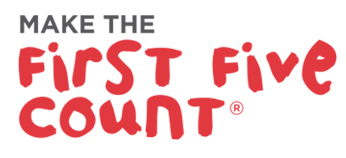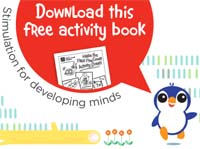What the recommendation against autism screenings really means
by Katy
 There was a lot in the mainstream press earlier this month about the U.S. Preventive Services Task Force’s recommendation against universal autism screening for all young children. What the Task Force said was that when it comes to a young child whose parents, other caregivers or healthcare providers have no concerns that the child may have autism, there is no need to screen for this specific condition.
There was a lot in the mainstream press earlier this month about the U.S. Preventive Services Task Force’s recommendation against universal autism screening for all young children. What the Task Force said was that when it comes to a young child whose parents, other caregivers or healthcare providers have no concerns that the child may have autism, there is no need to screen for this specific condition.
Its important to read this recommendation for what it is, and also for what it is not. The Task Force is NOT recommending that parents and other caregivers avoid screening young children to measure and monitor their development using a tool like the Easter Seals Ages and Stages Questionnaire® (ASQ), which measures child development in all areas of development: language development, emotional and physical development. Rather, the Task Force said that they could not justify an autism-specific screening for every child.
I understand their point. I just hope that it doesn’t stop a parent or caregiver from taking the important step in using a tool like the ASQ to measure and monitor a child’s development. The U.S. Department of Health and Human Services affirms that approximately 40 percent of all kids under the age of 5 are at moderate or high risk of having a developmental delay.
That’s a lot of kids!!!
Since Easter Seals launched the Make the First Five Count campaign, we have screened more than 50,000 kids. Our data are aligned with the national data that 40 percent of the kids have a disability or a delay that needs to be addressed with early intervention services.
Our data show that most of these young children have a delay in either language development or physical development. A delay in language development could be an indication of a number of issues — the consequences of chronic ear infections or perhaps autism. In my case, my daughter’s language delay was the result of me over-anticipating her needs. She didn’t need to talk because I was doing everything for her.
Way to go, Mom.
After a screening to determine what was going on, my Easter Seals child care staff suggested that I make my daughter tell me what she needed, rather than me asking her. In about 2 weeks, she was talking up a storm.
A screening is an important trigger to determine the next steps. We have seen progress in the number of young children who have been screened with a tool like the ASQ. We’ve gone from 20 percent of all children being screened to 30 percent in the last couple of years. This progress is fantastic, but the fact remains that 70 percent of all children under age five are not being screened. Rather than getting the supports they need to address the delay, too many of these children will enter kindergarten with a delay that puts them behind their peers.
It remains true that knowledge is power. I hope every parent of a child under the age of 5 routinely measures their child’s developmental progress. We have the Ages and Stages Questionnaire available for free online and also have child development experts in your community who can help you support your child’s unique needs.
I know firsthand that even the most attentive parent can miss something. Easter Seals is here to support you to be the best parent possible. Together, let’s continue to Make the First Five Count!
Visit Easter Seals Make the First Five Count to take the screening and find child development resources and stories.








February 25th, 2016 at 5:25 pm
Seeking a pediatrician who specializes in aspergers/autism in DC /Virginia area? My great niece is under going several tests which will require a pediatrician to evaluate.
Thanking you in advance.
Gloria Kelly